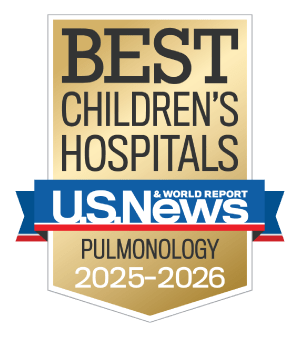Asthma Center

Comprehensive Care for Difficult-to-Treat (DTT) Asthma
The Asthma Center at Cincinnati Children’s provides a comprehensive, multi-disciplinary approach to caring for children with severe, complex, uncontrolled and / or difficult to treat (DTT) asthma. We have specific expertise in treating asthma in children with co-morbidities and underlying conditions that make asthma difficult to control.
We understand the impact breathing difficulty can have on everyday activities such as attending school, participating in gym or sports, and getting enough sleep at night. Our team provides a comprehensive evaluation of your child’s breathing, including state-of-the-art diagnostic testing, in order to provide the best individualized treatment plan to manage your child’s asthma.
#2 Pulmonary Program in the Nation
The Asthma Center is part of the Division of Pulmonary Medicine which is ranked #2 in the nation by U.S. News & World Report.
Our Clinical Trials
Research studies help us understand disease and develop new ways to treat and prevent health problems. Learn more about our clinical trials.
View Clinical Trials


